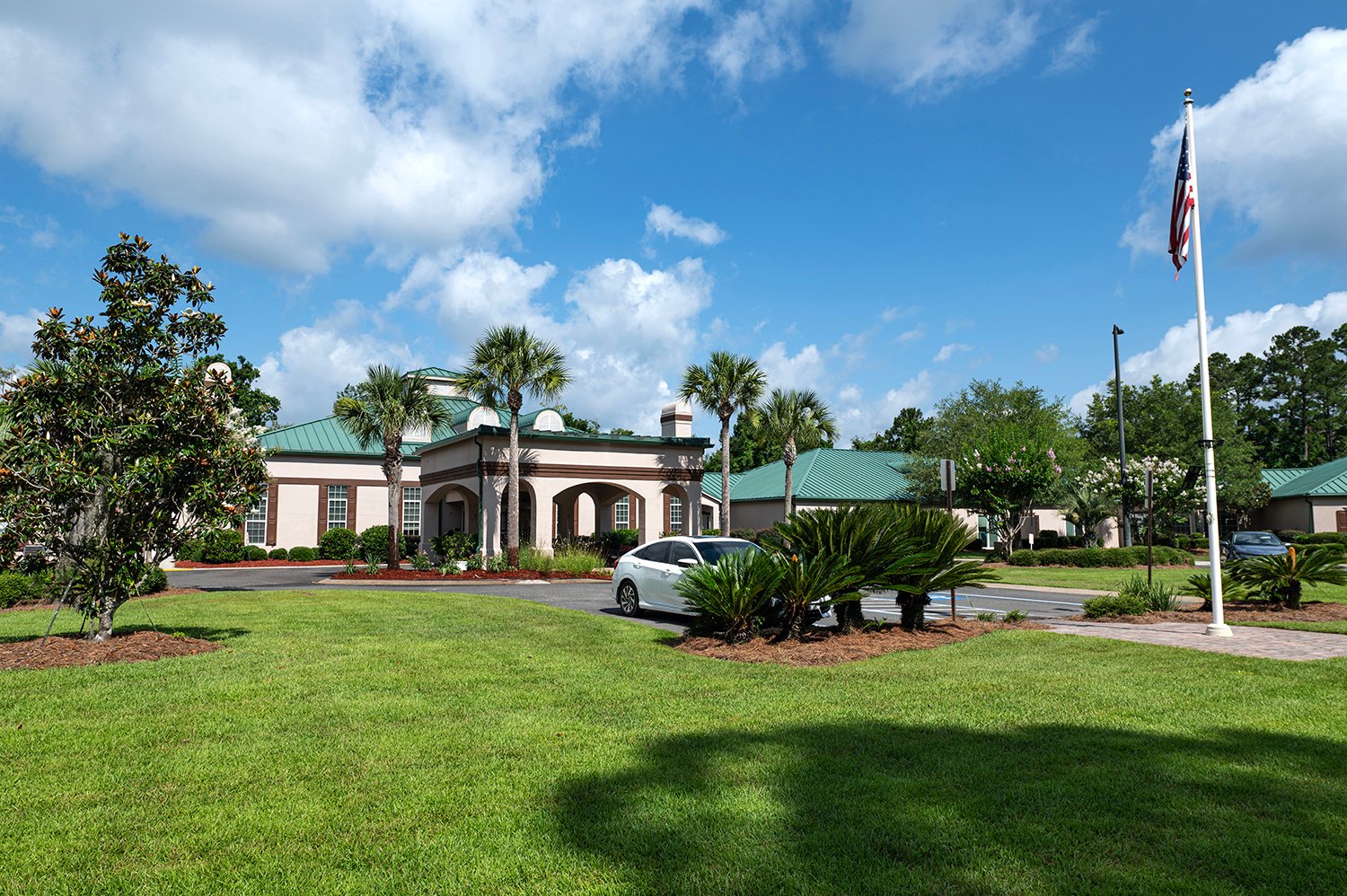Download our Free Guide:
Senior Living Explained
Learn what different types of senior living care are available and which one best fits your needs now and in the future.

%20low%20rez.jpg)

This year, more than 268,000 men will be diagnosed with prostate cancer – and more than 34,000 will die from it. With those numbers, it’s easy to understand that prostate cancer is the #2 cause of death among American men (lung cancer is #1). That’s why we “celebrate” September as Prostate Cancer Awareness Month.
The Facts about Prostate Cancer
 This disease can creep up on men because, often, there are no early symptoms. Even when symptoms do appear – weaker flow or more frequent urination – they do not necessarily indicate cancer. Doctors stress early screening as the best way to catch prostate cancer in time to treat it. With that, the 10-year survival rate is 98%
This disease can creep up on men because, often, there are no early symptoms. Even when symptoms do appear – weaker flow or more frequent urination – they do not necessarily indicate cancer. Doctors stress early screening as the best way to catch prostate cancer in time to treat it. With that, the 10-year survival rate is 98%
Prostate cancer is usually associated with aging, although other factors such as genetics, lifestyle habits, and race also play a role. In the US, 60% of cases are found in men age 65 or older. And Black men are 73% more likely to get this cancer. In fact, African-American men in the US and the Caribbean are the highest risk group in the entire world.
There Are Real Reasons to Celebrate
The excellent survival rate for prostate cancer is the result of early detection and highly successful treatment protocols. Just this spring, the US Food and Drug Administration (FDA) approved two new drugs to help patients with more advanced prostate cancer.
1. 177Lu-PSMA-617
Approved in March, this therapy selectively targets PSMA, a protein found on the surface of cancer cells. (PMSA stands for prostate-specific membrane antigen.) The drug is administered in combination with standard treatment that aims to slow disease progression. It works by delivering radiation that heats and destroys the cancer cell.
Michael Morris, one of the researchers who conducted clinical trials of 177Lu-PSMA-617, is a medical oncologist at Memorial Sloan Kettering Cancer Center. He describes this therapy as “a game changer for patients whose prostate cancer has spread despite receiving multiple treatments.” That’s because the drug is considered a breakthrough, in that it successfully treats cancer that has become resistant to other drugs.
“FDA approval of this therapy will enable even more people who had essentially been given death sentences to survive and live well,” explains Dr. Morris. %20low%20rez.jpg?width=450&name=Richmond%20Hill%20Fathers%20Day%20(1431)%20low%20rez.jpg)
2. Darolutamide
Approved in August, darolutamide (also known as Nubeqa) is designed to help men with metastatic hormone-sensitive prostate cancer (mHSPC) which has spread outside the prostate and which responds to hormone therapy. The drug is also approved for patients who have not yet been given hormone therapy.
Darolutamide is administered in combination with docetaxel chemotherapy, the most common protocol for mHSPC. It blocks the androgen receptor, effectively cutting off the hormone (androgen) that serves as a catalyst for this type of prostate cancer. In clinical trials, patients who received darolutamide in addition to their standard treatment had a 32% higher survival rate during the follow-up period.%20%20low%20rez.jpg?width=450&name=Richmond%20Hill%20Fathers%20Day%20(1436)%20%20low%20rez.jpg)
How Men Can Reduce Their Risk
Prostate cancer can affect men of any age, so it’s never too early to talk to your doctor. There is no way to prevent this disease, but Johns Hopkins Medicine recommends screening early and often. In addition, they suggest men can reduce their risk by:
%20low%20rez.jpg?width=450&name=Richmond%20Hill%20Fathers%20Day%20(1433)%20low%20rez.jpg) We Can All Help
We Can All Help
Anyone can help build awareness of prostate cancer and support research efforts, not only in September but year round. Learn more about what you can do here.
Magnolia Manor is Here to Help
At Magnolia Manor, we believe in providing well-rounded care for all of our residents to meet their physical, mental, emotional, and spiritual needs. Any resident that requires a higher level of care, is especially in need of extra support, perhaps their loved ones could use some support too. Whether it’s compassionate care from our dedicated staff, or pastoral services from our on-site chaplains, Magnolia Manor is here to provide the support you need. To learn more about senior living at one of our eight senior living communities, contact us online or give us a call at 855-540-LIFE (5433).
Learn what different types of senior living care are available and which one best fits your needs now and in the future.
